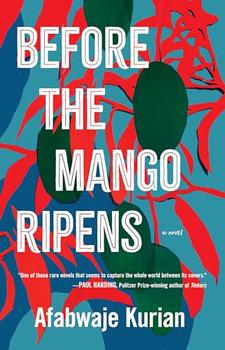
by László Krasznahorkai (author)
A magnificent new collection of stories by "the contemporary Hungarian master of apocalypse" (Susan Sontag).
In The World Goes On, a narrator first speaks directly, then tells eleven unforgettable stories, and then bids farewell ("for here I would leave this earth and these stars, because I would take nothing with me"). As László Krasznahoraki himself explains: "Each text is about drawing our attention away from this world, speeding our body toward annihilation, and immersing ourselves in a current of thought or a narrative…" A Hungarian interpreter obsessed with waterfalls, at the edge of the abyss in his own mind, wanders the chaotic streets of Shanghai. A traveler, reeling from the sights and sounds of Varanasi, encounters a giant of a man on the banks of the Ganges ranting on the nature of a single drop of water. A child laborer in a Portuguese marble quarry wanders off from work one day into a surreal realm utterly alien from his daily toils.
The World Goes On is another amazing masterpiece by the winner of the 2015 Man Booker International Prize. "The excitement of his writing," Adam Thirwell proclaimed in the New York Review of Books, "is that he has come up with this own original forms?there is nothing else like it in contemporary literature."
"Starred Review. This book breaks all conventions and tests the very limits of language, resulting in a transcendent, astounding experience." - Publishers Weekly
"Complex and difficult, as are all of Krasznahorkai's works, but worth sticking with." - Kirkus
"One of the most mysterious artists now at work." - Colm Tóibín
"The universality of Krasznahorkai's vision rivals that of Gogol's Dead Souls and far surpasses all the lesser concerns of contemporary writing." - W. G. Sebald
This information about The World Goes On was first featured
in "The BookBrowse Review" - BookBrowse's membership magazine, and in our weekly "Publishing This Week" newsletter. Publication information is for the USA, and (unless stated otherwise) represents the first print edition. The reviews are necessarily limited to those that were available to us ahead of publication. If you are the publisher or author and feel that they do not properly reflect the range of media opinion now available, send us a message with the mainstream reviews that you would like to see added.
Any "Author Information" displayed below reflects the author's biography at the time this particular book was published.
Lászlo Krasznahorkai, described by James Wood in the New Yorker as an "obsessive visionary," was born in Gyula, Hungary.
Translation by:
George Szirtes is a Hungarian-born British poet and translator who has translated works by Sándor Csoóri, Dezsö Kosztolányi, and László Krasznahorkai.
Ottilie Mulzet is a literary critic and translator of Hungarian.
John Batki is a kilimologist*, writer, translator, and visual artist. He was born in Hungary and has lived in the United States since age 14.
*According to Batki's webiste: Kilimologist, a noun denoting the study of Old World weavings, was coined and first published in 1983 by John Batki in an article in Oriental Rug Review, Volume II, No. 12. The word also describes original art work by John Batki referencing the qualities of visuality seen in traditional old weavings.




The single biggest problem in communication is the illusion that it has taken place
Click Here to find out who said this, as well as discovering other famous literary quotes!
Your guide toexceptional books
BookBrowse seeks out and recommends the best in contemporary fiction and nonfiction—books that not only engage and entertain but also deepen our understanding of ourselves and the world around us.